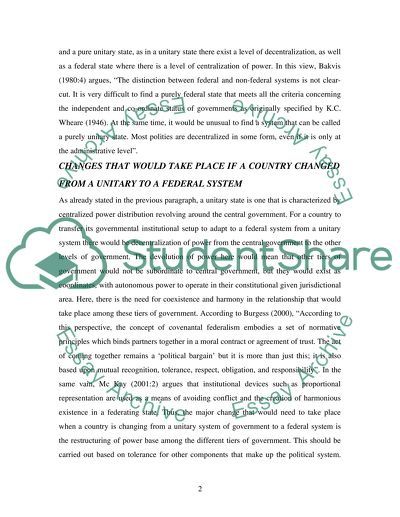Cite this document
(“The Institutional Approach: Changes That Would Take Place If A Country Essay”, n.d.)
The Institutional Approach: Changes That Would Take Place If A Country Essay. Retrieved from https://studentshare.org/miscellaneous/1503282-the-institutional-approach-changes-that-would-take-place-if-a-country-changed-from-a-unitary-to-a-federal-system
The Institutional Approach: Changes That Would Take Place If A Country Essay. Retrieved from https://studentshare.org/miscellaneous/1503282-the-institutional-approach-changes-that-would-take-place-if-a-country-changed-from-a-unitary-to-a-federal-system
(The Institutional Approach: Changes That Would Take Place If A Country Essay)
The Institutional Approach: Changes That Would Take Place If A Country Essay. https://studentshare.org/miscellaneous/1503282-the-institutional-approach-changes-that-would-take-place-if-a-country-changed-from-a-unitary-to-a-federal-system.
The Institutional Approach: Changes That Would Take Place If A Country Essay. https://studentshare.org/miscellaneous/1503282-the-institutional-approach-changes-that-would-take-place-if-a-country-changed-from-a-unitary-to-a-federal-system.
“The Institutional Approach: Changes That Would Take Place If A Country Essay”, n.d. https://studentshare.org/miscellaneous/1503282-the-institutional-approach-changes-that-would-take-place-if-a-country-changed-from-a-unitary-to-a-federal-system.


